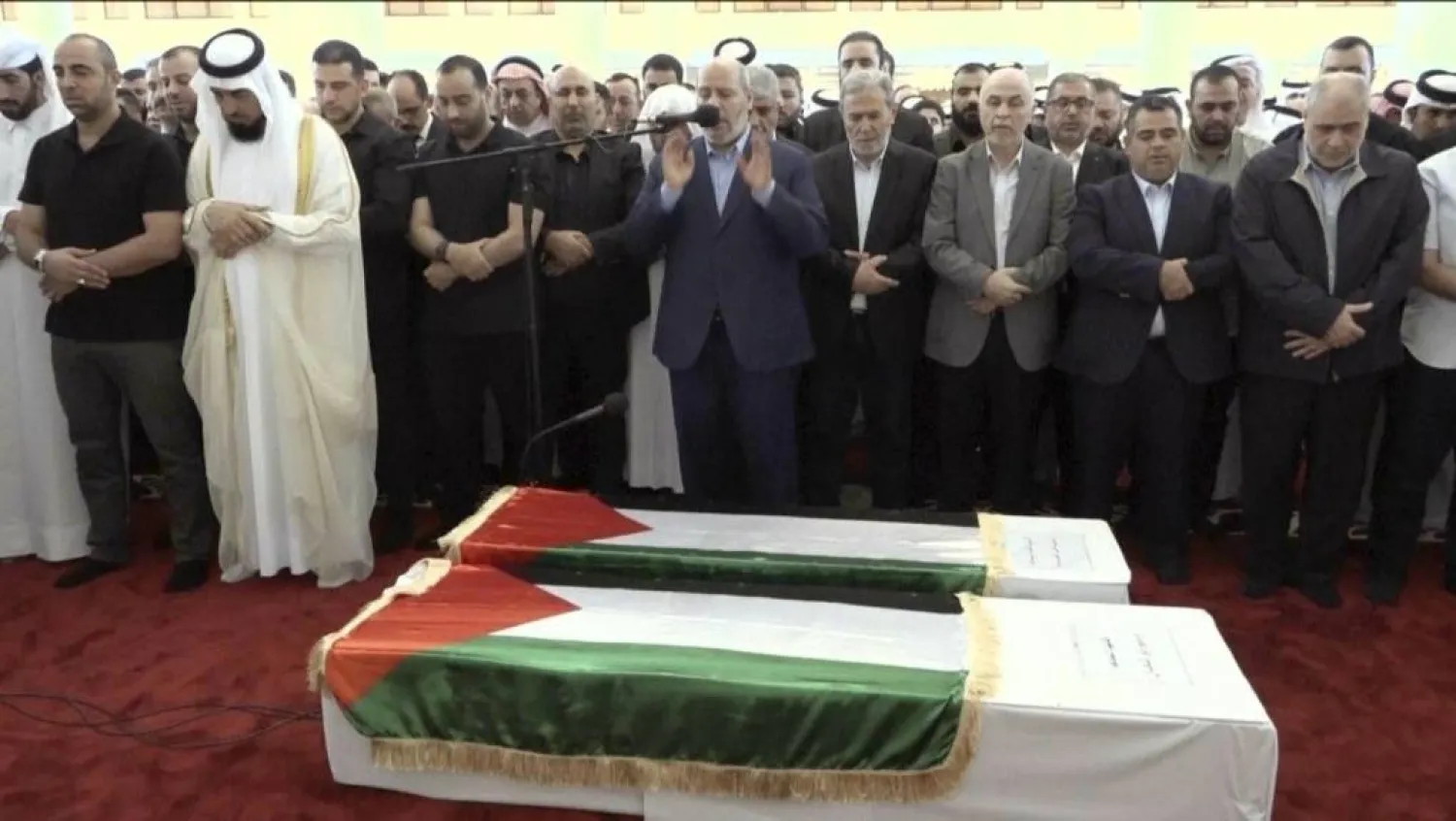Mourners gathered in Doha on Friday to hold funeral prayers for slain Hamas leader Ismail Haniyeh as Iran and its regional allies vowed to retaliate against Israel.
With the bodies of Haniyeh and his bodyguard in coffins draped with Palestinian flags, men knelt and prayed while senior leaders of Hamas' Qatar-based political office paid their respects to Haniyeh's family, The AP reported.
That included two men seen as his possible successors: Khalil Al-Hayya, a Hamas senior official and the head of Palestinian Islamic Jihad, and former Hamas Chief Khaled Mashaal, a close Haniyeh aide.
Al-Hayya told family members that Haniyeh was “no better or dearer” than the children killed in Gaza. Some 39,480 Palestinians have been killed throughout the war, according to Gaza’s Health Ministry, which does not differentiate between civilians and combatants.
“We are sure that his blood will bring out victory, dignity and liberation," he said.
The funeral came a day after Israel said it had confirmed that the head of Hamas’ military wing, Mohammed Deif, was killed in an July 13 airstrike in Gaza, and a few days after Israel said it had killed Hezbollah commander Fouad Shukur in a strike in Lebanon.
Hamas has yet to comment and had previously claimed Deif survived last month's targeted airstrike.
Israel has yet to claim or deny a role in the killing of Haniyeh, but Hamas and its allies say it was responsible. The group said he was killed in a missile strike on a Tehran guesthouse where he was staying while after attending the inauguration of Iran’s new president.
From Morocco to Iran, demonstrators took to the streets in a show of support for Haniyeh, who was killed in Tehran on Wednesday.
“Let Friday be a day of rage to denounce the assassination,” Hamas’ Izzat al-Risheq said in a statement.
A day earlier, supporters paraded through Tehran as Haniyeh's coffin was carried through the city in an ornate vehicle, while hundreds of black-clad mourners packed an auditorium in Beirut to pay respects to the slain Hezbollah commander.
“We’ve entered a new phase that is different from the previous period,” Hezbollah’s leader, Hassan Nasrallah, told mourners, vowing a “well-studied retaliation” against Israel.
The killing of two of Hamas’ most senior figures was a victory for Israeli Prime Minister Netanyahu as Israeli forces continue to operate in Gaza, nearly 10 months after Hamas' Oct. 7 attack on Israel sparked war.
Domestically, it could help win over skeptics of his war strategy, but internationally, it set off a scramble among mediators to salvage a ceasefire deal and avert regional war.
“We have the basis for a ceasefire. He (Netanyahu) should move on it and they should move on it now," US President Joe Biden said late Thursday, speaking on the tarmac of an air base outside Washington.
But Haniyeh had been among Hamas' main negotiators throughout the ceasefire discussions and his assassination could throw into disarray months of talks.
”You (Israel) cannot achieve peace by killing the negotiators and threatening diplomats," Oncu Keceli, a spokesperson for Türkiye's Foreign Ministry, wrote on the social media platform X.









